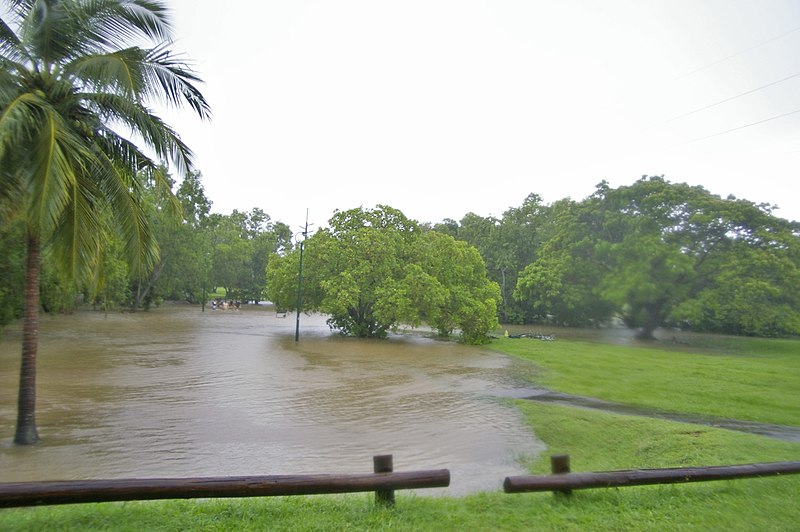
The word "flood" comes from the Old Englishflod, a word common to Germanic languages (compare GermanFlut, Dutchvloed from the same root as is seen in flow, float; also compare with Latinfluctus, flumen). Deluge myths are mythical stories of a great flood sent by a deity or deities to destroy civilization as an act of divine retribution, and they are featured in the mythology of many cultures.
Primary effects
The primary effects of flooding include loss of life, damage to buildings and other structures, including bridges, sewerage systems, roadways, and canals.Infrastructure damage also frequently damages power transmission and sometimes power generation , which then has knock-on effects caused by the loss of power.This includes loss of drinking water treatment and water supply, which may result in loss of drinking water or severe water contamination.It may also cause the loss of sewage disposal facilities.Lack of clean water combined with human sewage in the flood waters raises the risk of waterborne diseases , which can include typhoid , giardia , cryptosporidium , cholera and many other diseases depending upon the location of the flood.
Damage to roads and transport infrastructure may make it difficult to mobilise aid to those affected or to provide emergency health treatment.Flood waters typically inundate farm land, making the land unworkable and preventing crops from being planted or harvested, which can lead to shortages of food both for humans and farm animals.Entire harvests for a country can be lost in extreme flood circumstances.Some tree species may not survive prolonged flooding of their root systems
Secondary and long-term effects
Economic hardship due to a temporary decline in tourism, rebuilding costs, or food shortages leading to price increases is a common after-effect of severe flooding.The impact on those affected may cause psychological damage to those affected, in particular where deaths, serious injuries and loss of property occur.
Benefits of flood
Floods (in particular more frequent or smaller floods) can also bring many benefits, such as recharging ground water , making soil more fertile and increasing nutrients in some soils.Flood waters provide much needed water resources in arid and semi-arid regions where precipitation can be very unevenly distributed throughout the year.Freshwater floods particularly play an important role in maintaining ecosystems in river corridors and are a key factor in maintaining floodplain biodiversity.Flooding can spread nutrients to lakes and rivers, which can lead to increased biomass and improved fisheries for a few years.For some fish species, an inundated floodplain may form a highly suitable location for spawning with few predators and enhanced levels of nutrients or food. Fish, such as the weather fish , make use of floods in order to reach new habitats.Bird populations may also profit from the boost in food production caused by flooding. Periodic flooding was essential to the well-being of ancient communities along the Tigris-Euphrates Rivers, the Nile River, the Indus River , the Ganges and the Yellow River among others.The viability of hydropower , a renewable source of energy, is also higher in flood prone regions.



ไม่มีความคิดเห็น:
แสดงความคิดเห็น